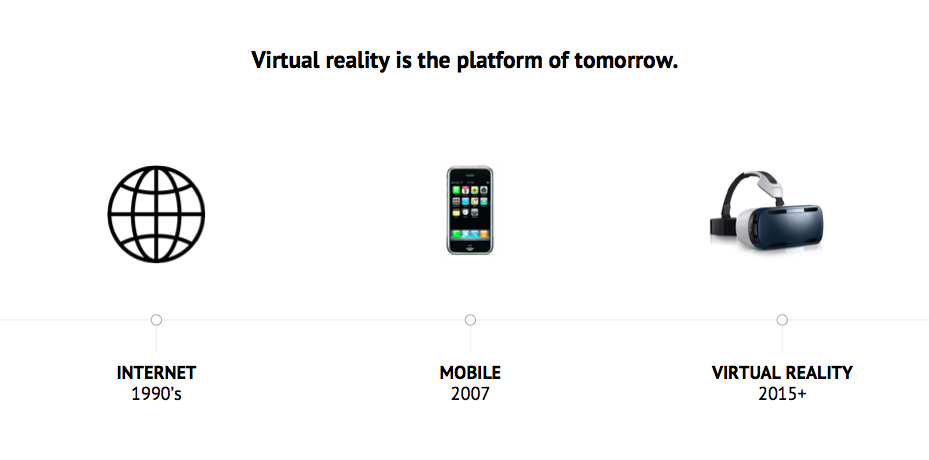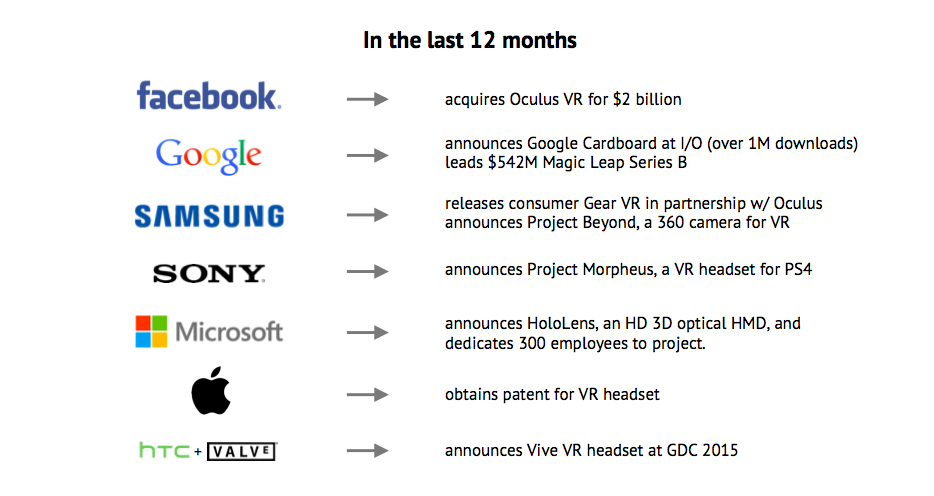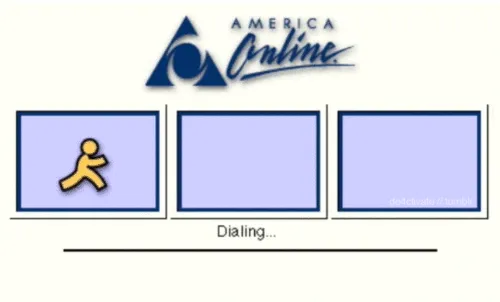Virtual reality is going to be a big deal, this much is undeniable. Is virtual reality a big deal to the Average Joe yet? Not really. Why? Because VR is currently in an era reminiscent of dial up modems and brick cell phones, the early stage of the platform, and early on in a platform cycle everything sucks.
A new major computing platform arrives every 10 to 15 years and the emergence is always a REALLY big deal. First it was the Internet, then personal and mobile computing, now it’s virtual reality.

Thinking about life today without the Internet and smartphones is a difficult exercise. Both have fundamentally shifted our culture and behavior more rapidly than ever expected. First they changed the way we watch our porn, then they proceeded to change the way we communicate, gather information, socialize, learn and everything in between. However these platforms weren’t born perfect, in fact they were awful by comparison to today’s standards.
The early Internet was nothing more than static webpages linked together. There were very few content creators and the vast majority of us were simply consumers of content, not to mention how horrendously slow it was. Looking back on it, it’s ridiculous that a phone call to a landline was a major interruption when trying to “login to the internet”, but early on in a platform cycle that’s just how it is.
Early mobile wasn’t even a platform; it was really just small, wireless landline phones. They served one purpose, to make and receive calls and messages. It wasn’t until the introduction of the iPhone that mobile evolved into a platform, and even then it was super expensive, clunky, and slow by comparison to today’s standards. The first iPhone didn’t even have an app store. We had to hack our phones just to play games. It sounds ridiculous now, but early on in a platform cycle that’s just how it is. You need to allow time to work out the kinks.

We’re currently in the early stages of the VR platform cycle. Undoubtedly there are still some big kinks that need to be solved like resolution, latency, input, user experience and content capturing but these are the same issues we see early on in any platform cycle. Given the existing technology infrastructure and the fact that we’re reaping the dividend of the cell phone wars, we’re likely to see VR reach mass adoption much faster than platforms before it. The Internet took 4 years to reach 50M users, VR is on a much quicker trajectory.
Let’s also keep in mind that it was only 12 months ago that Facebook acquired Oculus for a cool $2B, and since then major players including Google, Samsung, Sony, Microsoft, Apple, HTC and Valve have began making VR hardware for the consumer masses.

Virtual reality is emerging right now and this platform is revolutionizing more than just the porn industry, I promise. It’s a brand new creative medium ushering in a new era of startup innovation. Its potential is truly limitless, and has implications across almost every vertical including gaming, film & entertainment, education, medical, social media and more.
I find it helpful to remember just how early we are in this whole VR thing. Remembering all the times I got booted out of a chat room because my home phone rang or thinking about how torturous it would be to have to go back to browsing on the Edge network. Yes, VR still has its quirks, but early on in a platform cycle that’s just how it is. In time we’ll break through the dial up / brick phone era and reemerge on the other side with the most innovative platform the world has ever seen right in our fingertips.





























